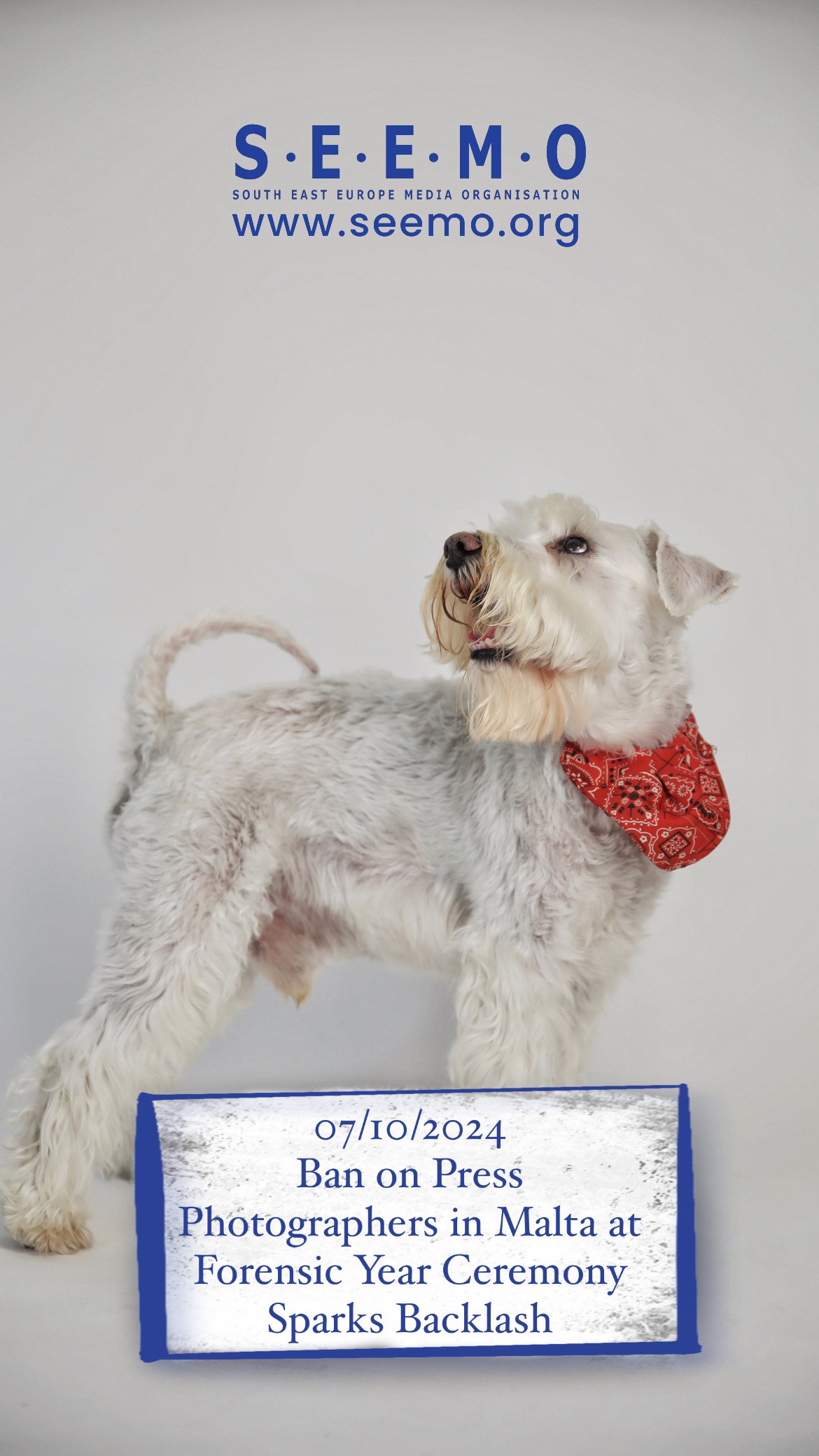On 1 October 2024, photographers and video/camera-repoters were unexpectedly barred from the Law Courts in the Malta capital Valletta (Il-Belt Valletta), during the ceremony marking the start of the forensic year. Despite this being one of the rare occasions where the media is granted access to take photos inside the courts, photojournalists who arrived were allegedly informed by security personnel that only official photographers from the Department of Information, as well as allegedly those from the offices of the Prime Minister and President, were allowed to cover the event. The press ban came without prior notice, leaving many photojournalists surprised and excluded from documenting this significant occasion. No photos were sent to the media as was usually the practice over the official government channels.
The Institute of Maltese Journalists (Istitut tal-Ġurnalisti Maltin – IĠM – https://igm.mt/) quickly condemned the move, arguing that it violated the constitutional protection of freedom of expression. The IĠM emphasized that while concerns about publishing the faces of judges exist, this should not justify restricting media access, noting that the judiciary should not operate in secrecy.
In response, the Chief Justice of Malta Mark Chetcuti, born 1958, who was appointed as Chief Justice in 2020, issued an apology later in the day, explaining that the situation arose from a “lack of communication” and was not an intentional move to restrict press freedom. He further clarified that no such ban had been enacted during his previous years as Chief Justice. Nonetheless, the incident sparked concerns about transparency and access to public judicial events.
The South East Europe Media Organisation (SEEMO) condemns the decision to allegedly ban press photographers and videographers from covering the opening of the forensic year at the Law Courts in Valletta, Malta. This move undermines press freedom and transparency, crucial elements in democratic societies. SEEMO urges the Maltese judiciary to ensure that such incidents do not recur, and calls on the government to safeguard media access to public events. SEEMO will continue to monitor the situation to ensure the rights of journalists and photo / video reporters are upheld.
South East Europe Media Organisation (SEEMO) is a regional non-governmental, non profit network of editors, media executives and leading journalists in Southeast, South, East and Central Europe. SEEMO members are in Albania, Armenia, Azerbaijan, Belarus, Bosnia-Herzegovina, Bulgaria, Croatia, Cyprus, Czech Republic, Estonia, Georgia, Greece, Hungary, Kazakhstan, Kosovo, Kyrgyzstan, Latvia, Lithuania, Malta, Moldova (with the territory of Transdnestria), Montenegro, North Macedonia, Poland, Romania, Russia, Serbia, Slovakia, Slovenia, Tajikistan, Turkmenistan, Türkiye / Turkey, Ukraine and Uzbekistan. Austria, Italy, Vatican and San Marino have a special status in SEEMO. SEEMO has over 3000 individual members, and additional media as corporate members.
#fyp #mediafreedom #seemo #freespeech #southeasteuropemediaorganisation #ngo #journalist #malta #valletta #SEEMO #pressfreedom #mediafreedom #freemedia

